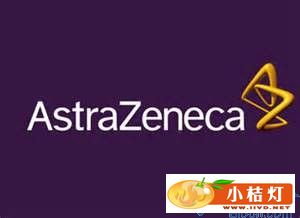登陆有奖并可浏览互动!
您需要 登录 才可以下载或查看,没有账号?立即注册


×

阿斯利康(AZN)与竞争对手罗氏(Roche)达成合作,开发一种基于血浆(plasma)的伴随诊断试剂盒,用于支持阿斯利康在研的实验性化合物AZD9291,该药是阿斯利康肿瘤学管线中的潜在重磅药物,正开发用于非小细胞肺癌(NSCLC)的治疗。有分析师预测,AZD9291上市后的年销售额将突破30亿美元。AZD9291也是阿斯利康长期重组计划的一大支柱,此前阿斯利康计划在未来10年使收入增加75%,预计在2023年达到450亿美元,其中AZD9291的前景是一个重要方面。此外,AZD9291也是阿斯利康与Clovis肿瘤学公司抗衡的利器,后者开发的另一种类似的EGFR/T790靶向性药物CO-1686目前也处于I/II期临床。(另附:《2020年全球伴随诊断(CD)市场将达35亿美元》) AZD9291旨在通过抑制突变型表皮生长因子受体(EGFR)治疗NSLCL。而与已上市的其他药物不同,AZD9291还能够抑制耐药性突变T790M,该突变能够使肿瘤产生耐药性。 目前,尚无药物获批用于携带耐药性突变T790M的肿瘤。在I期临床中,针对既往EGFR酪氨酸激酶抑制剂(TKI)治疗失败且携带T790M突变的EGFRm+ NSCLC患者群体,作为每日一次的单药疗法,AZD9291已表现出早期的临床疗效,同时具有很好的耐受性及较低的副作用。
此次双方合作开发的伴随诊断试剂盒,旨在利用来自NSCLC患者的肿瘤组织和血浆,鉴别表皮生长因子受体(EGFR)突变,并优化AZD9291的临床开发,用于对第一代EGFR酪氨酸激酶抑制剂(TKI)有抵抗的患者群体。 当前,既往已接受EGFR-TKIs但病情恶化的患者,必须不断的接受活检,以评估是否存在耐药性突变T790M。而基于血浆样品循环DNA(circulating DNA,ctDNA)开发的伴随诊断试剂盒,为鉴定T790M突变提供了另一种方法。 阿斯利康肿瘤学全球产品战略高级副总裁Mondher Mahjoubi称,阿斯利康致力于开发靶向性药物,以改善患者的健康预后。而了解每位患者的肿瘤性质并据此使用最可能获益的药物,对于癌症个性化诊疗至关重要。当前,晚期肺癌患者需要接受手术收集肿瘤组织,以便进行分子检测。在某些情况下,收集足够的组织用于检测几乎是不可能的。此次合作,将利用基于血浆样品的分子检测技术来提供所需的肿瘤信息,而无需开展手术便可做出治疗决策,从而不断提高患者的临床护理水平。 非小细胞肺癌(NSLCL)约占所有肺癌病例的80%-85%。不幸的是,有70%的NSCLC患者,在确诊时已发展为晚期或转移,不适合手术切除治疗。 关于AZD9291: AZD9291是一种可同时作用于激活敏感EGFR突变(EGFRm+)和激活抵抗突变T790M的高度选择性、不可逆抑制剂,同时不损害野生型EGFR的活性。携带EGFRm+突变的非小细胞肺癌(NSCLC)患者,对当前可用的EGFR-TKI药物尤其敏感,这类药物能够阻断驱动肿瘤细胞生长的信号传导通路。然而,肿瘤细胞几乎总是产生耐药性,从而导至病情的恶化。在大约一半的患者中,这种耐药性是由名为T790M的二次突变导至。(生物谷Bioon.com) 英文原文:AstraZeneca and Roche announce partnership to develop companion diagnostic test for AZD9291 Monday, 28 July 2014 AstraZeneca today announced it has entered into collaboration with Roche to develop a plasma-based companion diagnostic test to support AZD9291, AstraZeneca’s investigational compound in clinical development for non-small-cell lung cancer (NSCLC). The companion diagnostic test is designed to identify epidermal growth factor receptor (EGFR) mutations in both tumour tissue and plasma derived from patients with NSCLC, and to optimise the clinical development of AZD9291 for patients who are resistant to first-generation EGFR tyrosine kinase inhibitors (TKI). Currently, patients who have been treated with EGFR-TKIs in whom the disease has progressed have to undergo a repeat biopsy to assess whether they have a specific mutation, T790M. Diagnostic tests based on circulating DNA (ctDNA) in plasma samples provide an alternative method of identifying the T790M mutation. Mondher Mahjoubi, Senior Vice President, Global Product Strategy for Oncology at AstraZeneca said: “We are committed to developing targeted medicines that improve health outcomes for patients. Understanding the nature of each individual’s tumour and therefore which medicine is most likely to benefit them is vital if we are to transform the way cancer patients are diagnosed and treated.” “Currently, late-stage lung cancer patients have to undergo surgery to collect tissue from a tumor so it can be sent for molecular testing,” said Paul Brown, Head of Roche Molecular Diagnostics (RMD). “In some cases, collecting enough tissue for testing is not possible. This collaboration will enable molecular testing through plasma specimens and provide the information needed to inform treatment decisions without the complications of surgery, consequently increasing the level of care clinicians can give to the patient.” NSCLC represents approximately 80 to 85 per cent of all lung cancers. Unfortunately, at the time of diagnosis approximately 70 per cent of NSCLC patients have developed advanced or metastatic disease not amenable to surgical resection.
NOTES TO EDITORS About AZD9291 AZD9291 is a highly selective, irreversible inhibitor of both the activating sensitising EGFR mutation (EGFRm+) and the activating resistance mutation, T790M, while sparing the activity of wild type EGFR. Patients with EGFRm+ NSCLC are particularly sensitive to treatment with currently available EGFR TKIs, which block the cell signalling pathways that drive the growth of tumour cells. However, tumour cells almost always develop resistance to treatment, leading to disease progression. In approximately half of patients, this resistance is caused by the secondary mutation known as T790M. There are currently no targeted therapies approved for the treatment of tumours with this resistance mutation. In the ongoing Phase I study, AZD9291 has shown early evidence of activity as a once-daily monotherapy with clinical responses observed in an EGFRm+ population of patients with NSCLC who have previously failed on EGFR TKIs and also in patients with the T790M mutation. To date, AZD9291 has been well-tolerated with low rates of side effects.
|  /3
/3 